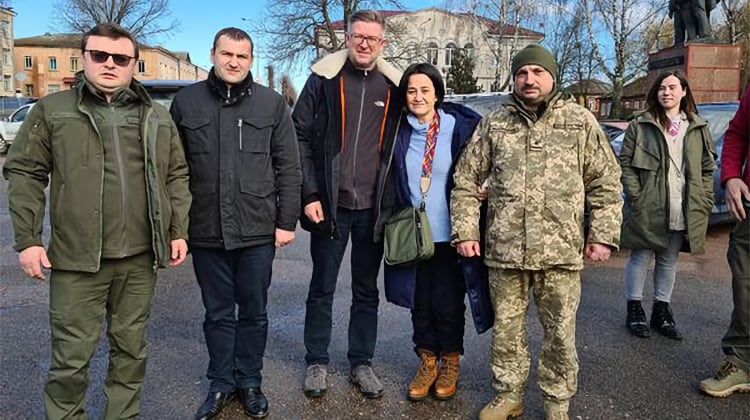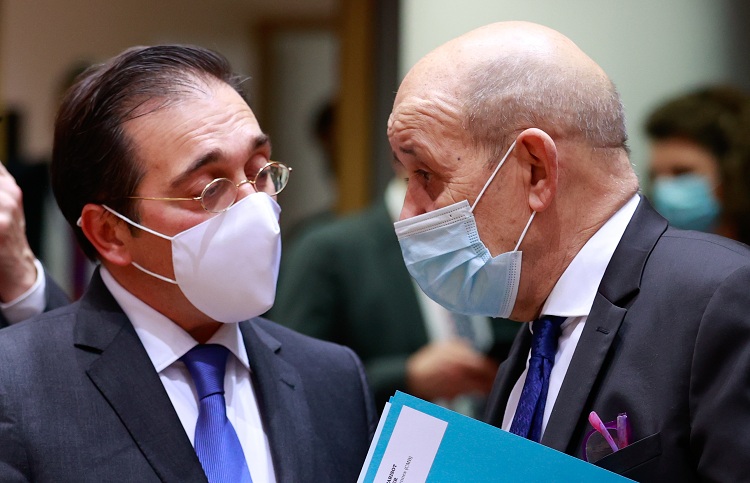The Diplomat
The Spanish ambassador to Kiev, Silvia Cortés, left the Ukrainian capital yesterday, along with a hundred Spaniards bound for Poland, according to the announcement made by the Minister of Foreign Affairs, José Manuel Albares.
Speaking to COPE early this morning, Albares reported that the ambassador and the remaining embassy staff, having been reduced to the essential minimum, had left in a convoy bound for the Polish border. With them were a hundred or so Spaniards still left in Ukraine.
The minister highlighted the “extraordinary work” carried out by the ambassador in recent weeks and hoped that her departure would be temporary and that she would be able to return. However, he admitted that, at the moment, “the minimum security conditions do not exist”.
Given the difficulties in moving through Ukraine, the Spanish convoy is not expected to be able to leave the country until at least today.
To provide protection and ensure the passage of convoys of Spaniards trying to leave Ukraine, the Government has decided to send a new group of members of the Special Operations Group (GEO) of the National Police to the border, as sources from the Ministry of the Interior informed Europa Press.
The deployment is part of ‘Operation Prussia’, in which the National Police is ensuring the security of the two convoys that have left from the Spanish Embassy in Kiev to evacuate consular staff and Spanish citizens.
The embassy already had a National Police security team which was reinforced last week with a group of nine GEO.
According to the same sources, the police also took charge of physically securing the Spanish embassy building after the departure of the second and last convoy, in which the ambassador was travelling.
In addition, the agents have been in charge of lowering the national flag from the headquarters, which they will guard until Spain. Along with the security work, the agents are attending to the needs of the evacuees (water, food and sanitation).
Last Tuesday, another convoy with 50 Spaniards left, leaving around a hundred in Ukraine, mainly people with dual nationality and deep roots, who had already made it known that they would not leave the country. The Foreign Ministry has recommended that all of them limit their movements as much as possible and remain in a safe place, in constant contact with the Spanish authorities.
Albares also said yesterday that Spain is studying Ukraine’s request to send protection material for the civilian population. Today, the Minister will receive at the Torrejón air base, together with the Chargé d’Affaires of the Ukrainian Embassy, Dmytro Matiuschenko, the material for the first shipment, by the Spanish Agency for International Development Cooperation (AECID), of humanitarian material to Ukraine to support the population in a situation of vulnerability.







